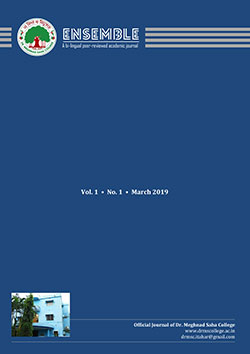Postcolonial Conflictual Nationalism causing Gender Violence in Pakistan and Srilanka analyzed through Fatima Bhutto and Nayomi Munaweera’s Select Fictions
Abstract
Nationalism, although a celebrated ideology, is observed as suffocating and detrimental to feminist individuality in certain regions of post liberated Pakistan and Sri Lanka wherein aggravated sectarian and ethnic conflicts have led to gender-based violence which has demolished feminine sexual purity forever. Since independence, both nations have undergone national crises as Sri Lankan citizens lived in trepidation for almost a decade because of the Sinhala-Tamil dispute whereas minority Shias and other deviant sects of Pakistan live in a constant threat of violence from radicalized and orthodox religious nationalist groups. The self-proclaimed nationalist Sunni and Sinhala groups peculiarly target women who apart from their role as reproducers and nurturers, participated equally in theanti-colonial liberation struggle only to be rewarded with ethnic and sectarian violence conflated with gender violence.
The research article aims topresent a literary exploration of Shia and Tamil women’s grievances and resistance through Fatima Bhutoo& Nayomi Munaweera’sselect fictional works and highlights the postcolonial political privileging of masculinity through nationalist ideologies and strategies which, despite structuring a brave new world of equality, attempts to silence women forever. At this point, the fundamental flaw of nationalism i.e. creating rife based on inequalities of ethnicity, race, culture, religion, and gender divisions within a nation becomes evident which not only conspires to push women back from their struggle for equal gender rights but also deprives them of social acceptance forever.
Keywords: Sexual violence, Nationalist ideologies, Ethnic conflict, Shia women, Tamil women
https://doi.org/10.37948/ensemble-2021-0301-a012
Views: 811



